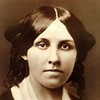“ For no function of man has so much permanence as virtuous activities (these are thought to be more durable even than knowledge of the sciences) , and of these themselves the most valuable are more durable because those who are happy spend their life most readily and most continuously in these ”
Aristotle, Nicomachean Ethics (c. 334 BC - 330 BC). copy citation
| Author | Aristotle |
|---|---|
| Source | Nicomachean Ethics |
| Topic | permanence science |
| Date | c. 334 BC - 330 BC |
| Language | English |
| Reference | |
| Note | Translated by W. D. Ross |
| Weblink | http://classics.mit.edu/Aristotle/nicomachaen.mb.txt |
Context
“Success or failure in life does not depend on these, but human life, as we said, needs these as mere additions, while virtuous activities or their opposites are what constitute happiness or the reverse.
The question we have now discussed confirms our definition. For no function of man has so much permanence as virtuous activities (these are thought to be more durable even than knowledge of the sciences) , and of these themselves the most valuable are more durable because those who are happy spend their life most readily and most continuously in these; for this seems to be the reason why we do not forget them. The attribute in question, then, will belong to the happy man, and he will be happy throughout his life; for always, or by preference to everything else, he will be engaged in virtuous action and contemplation, and he will bear the chances of life most nobly and altogether decorously, if he is 'truly good' and 'foursquare beyond reproach'.”
source


